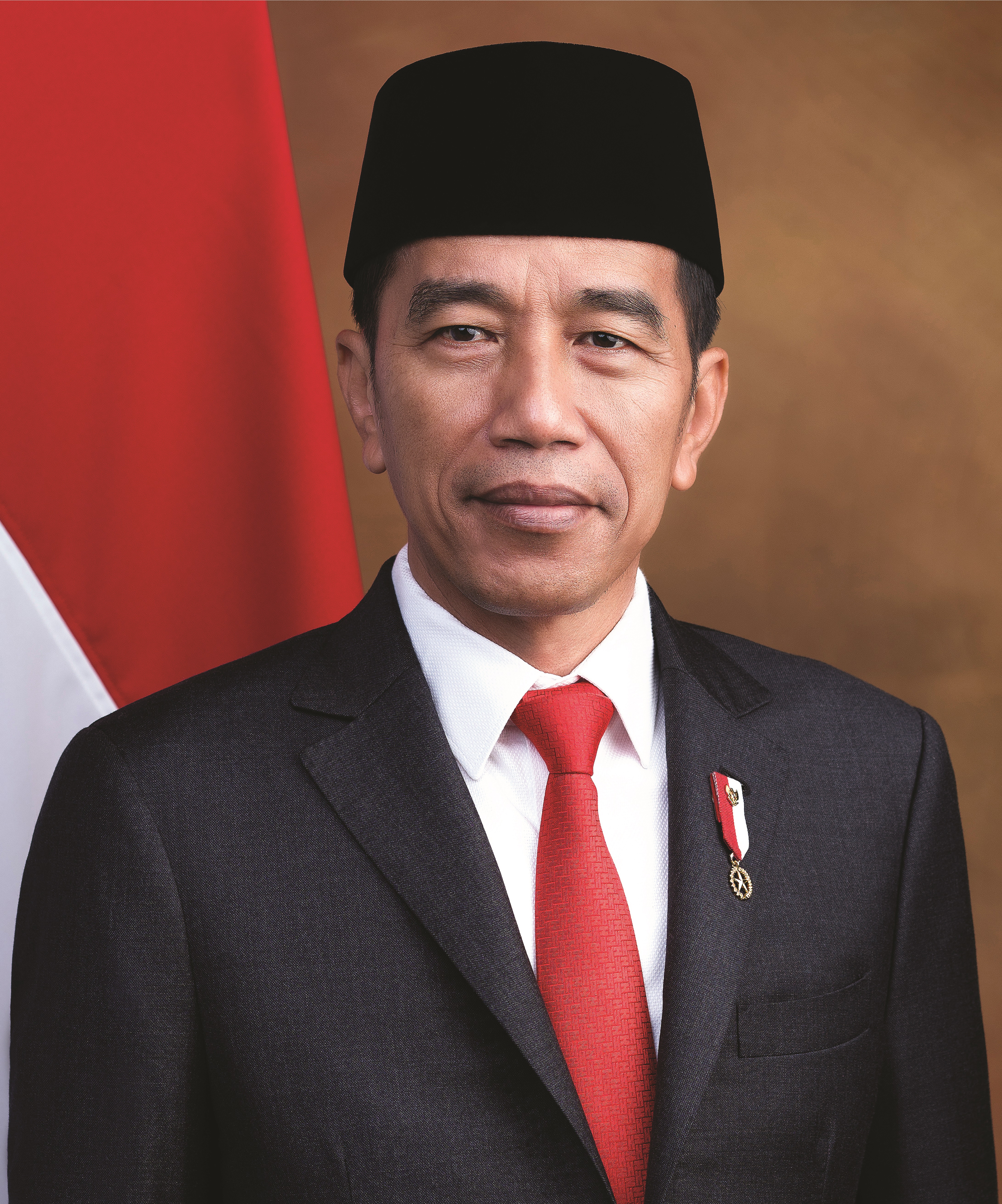Joko Widodo
 Joko Widodo (; born 21 June 1961), often known mononymously as Jokowi, is an Indonesian politician, engineer, and businessman who served as the seventh president of Indonesia from 2014 to 2024. Previously a member of the Indonesian Democratic Party of Struggle (PDI-P), he was the country's first president not to emerge from the country's political or military elite. He previously served as governor of Jakarta from 2012 to 2014 and mayor of Surakarta from 2005 to 2012.
Joko Widodo (; born 21 June 1961), often known mononymously as Jokowi, is an Indonesian politician, engineer, and businessman who served as the seventh president of Indonesia from 2014 to 2024. Previously a member of the Indonesian Democratic Party of Struggle (PDI-P), he was the country's first president not to emerge from the country's political or military elite. He previously served as governor of Jakarta from 2012 to 2014 and mayor of Surakarta from 2005 to 2012.Jokowi was born and raised in a riverside slum in Surakarta. He graduated from Gadjah Mada University in 1985, and married his wife, Iriana, a year later. He worked as a carpenter and a furniture exporter before being elected mayor of Surakarta in 2005. He achieved national prominence as mayor and was elected governor of Jakarta in 2012, with Basuki Tjahaja Purnama as vice governor. As governor, he reinvigorated local politics, introduced publicised visits (unannounced spot checks) and improved the city's bureaucracy, reducing corruption in the process. He also introduced a universal healthcare program, dredged the city's main river to reduce flooding, and inaugurated the construction of the city's subway system.
In 2014, Jokowi was nominated as the PDI-P's candidate in that year's presidential election, choosing Jusuf Kalla as his running mate. Jokowi was elected over his opponent, Prabowo Subianto, who disputed the outcome of the election, and was inaugurated on 20 October 2014. Since taking office, Jokowi has focused on economic growth and infrastructure development as well as an ambitious health and education agenda. During his presidency, there was massive infrastructure development and improvement in various parts of Indonesia, so he was nicknamed the Father of Indonesian Infrastructure. On foreign policy, his administration has emphasised "protecting Indonesia's sovereignty," with the sinking of illegal foreign fishing vessels and the prioritising and scheduling of capital punishment for drug smugglers. The latter was despite intense representations and diplomatic protests from foreign powers, including Australia and France. He was re-elected in 2019 for a second five-year term, again defeating Prabowo Subianto.
In the 2024 presidential election, Jokowi was widely perceived by analysts and media as favouring Prabowo, who ran with his son Gibran Rakabuming Raka, and subsequently won the election. He made public appearances with the pair but issued no formal endorsement. Allegations of state resource misuse to benefit their ticket were denied by the presidential office and deemed unproven by the Constitutional Court (MK). This strained his relationship with PDI-P, leading to his formal ousting (along with Gibran and Bobby Nasution, his son-in-law) in December 2024, months after the MK rejected all claims of electoral fraud.
Leaving office with a 75% approval rating, Jokowi left a mixed legacy. His presidency was noted for major infrastructure expansion, steady economic growth, and the broadening of social welfare programs, alongside initiatives such as relocating the national capital to Nusantara and promoting the Golden Indonesia 2045 Vision. Critics, however, pointed to democratic backsliding, weakened anti-corruption efforts, environmental impacts, and political dynasticism, particularly in his final term in office. Provided by Wikipedia
-
1
-
2
-
3
-
4
-
5
-
6